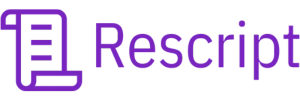Hungry for Change: Software Innovators Eye Government as the Next Frontier

Software is about to eat the government. From precinct to Pentagon, Capitol Hill to city hall — government operations are an “all-you-can-eat buffet” for voracious software innovators. Use cases are largely untouched, except for some legacy original-generation software systems. But with AI and next-gen cloud capabilities, software-first innovators are lining up, licking lips and prepping to chow down to disrupt government operations with technology.
Market Opportunity: TAM Unlike Any Business on the Planet
At $6.1 trillion, the U.S. Federal Budget constitutes the biggest “purse” on the planet. That is ~$17 billion in spending a day — a “venture-sized” market. While software has largely disrupted most areas of corporate America, many government functions are untapped by tech. But, as we’ve seen, tech transforms government every few decades, and the next wave is overdue.
Learn More About the U.S. Strategic Tech Fund
We are seeing strong interest in our U.S. Strategic Tech Fund. If you’d like to join us, we recommend securing a spot promptly.
Invest in technologies vital to U.S. national interests in a portfolio of ~15-20 venture investments made over ~12-18 months — diversified by stage, sector, geography, lead investor.
Max Accredited Investor Limit: 249
Looking Back: Tech Transforms Government
Throughout U.S. history, there have been a handful of new technologies that recast government operations.
- Home
The Telegraph
Developed by Samuel Morse in 1837, revolutionized long-distance communication, impacting military strategy and law enforcement coordination. - Home
The Automobile
Mass adoption beginning in the early 20th century, this transformed transportation for government services, including the Post Office, emergency response, and other infrastructure needs - Home
Personal Computing
Emerging in the 1970s and 1980s, revolutionized data processing and administrative efficiency. - Home
The Internet
Gaining widespread use in the 1990s, enabled online services, improved communication, and enhanced transparency. - Home
Mobile Technology and Smartphones
Popularized in the 2000s, have facilitated real-time communication and service delivery, significantly improving emergency response and public services.
What’s the next tech to reshape government operations?
Software, especially the new generation of AI-native.

Timing: Why Now?
The timing is ripe for software to revolutionize government operations, overcoming historical barriers hindering innovation. Traditionally, government budgeting has prioritized maintaining legacy systems over investing in new technologies, with a significant portion of the nearly $110 billion spent on technology in 2022 allocated to outdated infrastructure. The sheer complexity of government operations — involving thousands of pieces of legislation, numerous agencies, and millions of employees and communications — has also posed a significant challenge. Furthermore, the culture within government agencies has often favored established companies over collaborating with innovative startups.
This is changing in front of our own eyes. Breakthrough technologies, particularly in AI, have highlighted critical weaknesses, prompting the appointment of chief technology officers at various government levels to spearhead modernization efforts. Additionally, geopolitical pressures and the global tech race, especially fears of falling behind China and Russia, have accelerated the push for technological advancement. These factors collectively set the stage for software to disrupt and enhance government efficiency, transparency, and service delivery.
Illustrative Startups
Here are just a few startups using tech to disrupt government functions — and what they are “eating.”
Eating Budgeting
One of the first movers was OpenGov, an AV portfolio company founded in 2012, which provides cloud-based software solutions for government budgeting, planning, permitting, procurement, asset management, financials, and tax and revenue, helping over 1,900 public agencies operate more efficiently and strengthen public trust.
Eating Administration
A crop of new companies are focused on reducing the time government takes but leverage AI. One notable leader is AV portfolio company Unstructured.io, helping agencies utilize LLMs by pre-processing “unstructured data” to help with decision making. There are also new companies like Rescript.AI focused on tasks typically allocated to staffers. For example, Rescript tracks Congressional meetings effortlessly with AI, automatically writing memos in minutes and providing fast insights.
Eating Services
Then there are companies using software to enhance service offerings. For example, Multitude Insights is helping law enforcement with a tool that allows officers to share information about suspects, issue bulletins, and track trends during their shifts.
Software

Software has yet to significantly impact government operations, presenting an opportunity for AI and next-gen cloud technologies to disrupt and improve these systems.
Historically, innovations like the telegraph, automobile, personal computing, the internet, and mobile technology have transformed government functions. The current environment is ripe for software innovation due to outdated legacy systems, complex operations, and a culture resistant to change. However, the modernization of government through software seems inevitable, given breakthroughs in AI, geopolitical pressures, and the compelling benefits offered by innovators.
Step into the future of government software with an exclusive webinar featuring Matt White, the Co-Founder & CEO of Multitude Insights, hosted by Alumni Ventures’ Pete Mathias.
Join us for an insightful conversation where Matt White will share his expertise and insights into the transformative landscape of government software. Learn firsthand from a leader at the forefront of innovation as we delve into the challenges, opportunities, and future trends shaping the industry. Reserve your spot now.
Learn More About the U.S. Strategic Tech Fund
We are seeing strong interest in our U.S. Strategic Tech Fund. If you’d like to join us, we recommend securing a spot promptly.
Invest in technologies vital to U.S. national interests in a portfolio of ~15-20 venture investments made over ~12-18 months — diversified by stage, sector, geography, lead investor.
Max Accredited Investor Limit: 249
This communication is from Alumni Ventures, a for-profit venture capital company that is not affiliated with or endorsed by any school. It is not personalized advice, and AV only provides advice to its client funds. This communication is neither an offer to sell, nor a solicitation of an offer to purchase, any security. Such offers are made only pursuant to the formal offering documents for the fund(s) concerned, and describe significant risks and other material information that should be carefully considered before investing. For additional information, please see here. Example portfolio companies are provided for illustrative purposes only and are not necessarily indicative of any AV fund or the outcomes experienced by any investor. Example portfolio companies shown are not available to future investors, except potentially in the case of follow-on investments. Venture capital investing involves substantial risk, including risk of loss of all capital invested. This communication includes forward-looking statements, generally consisting of any statement pertaining to any issue other than historical fact, including without limitation predictions, financial projections, the anticipated results of the execution of any plan or strategy, the expectation or belief of the speaker, or other events or circumstances to exist in the future. Forward-looking statements are not representations of actual fact, depend on certain assumptions that may not be realized, and are not guaranteed to occur. Any forward-looking statements included in this communication speak only as of the date of the communication. AV and its affiliates disclaim any obligation to update, amend, or alter such forward-looking statements, whether due to subsequent events, new information, or otherwise.




